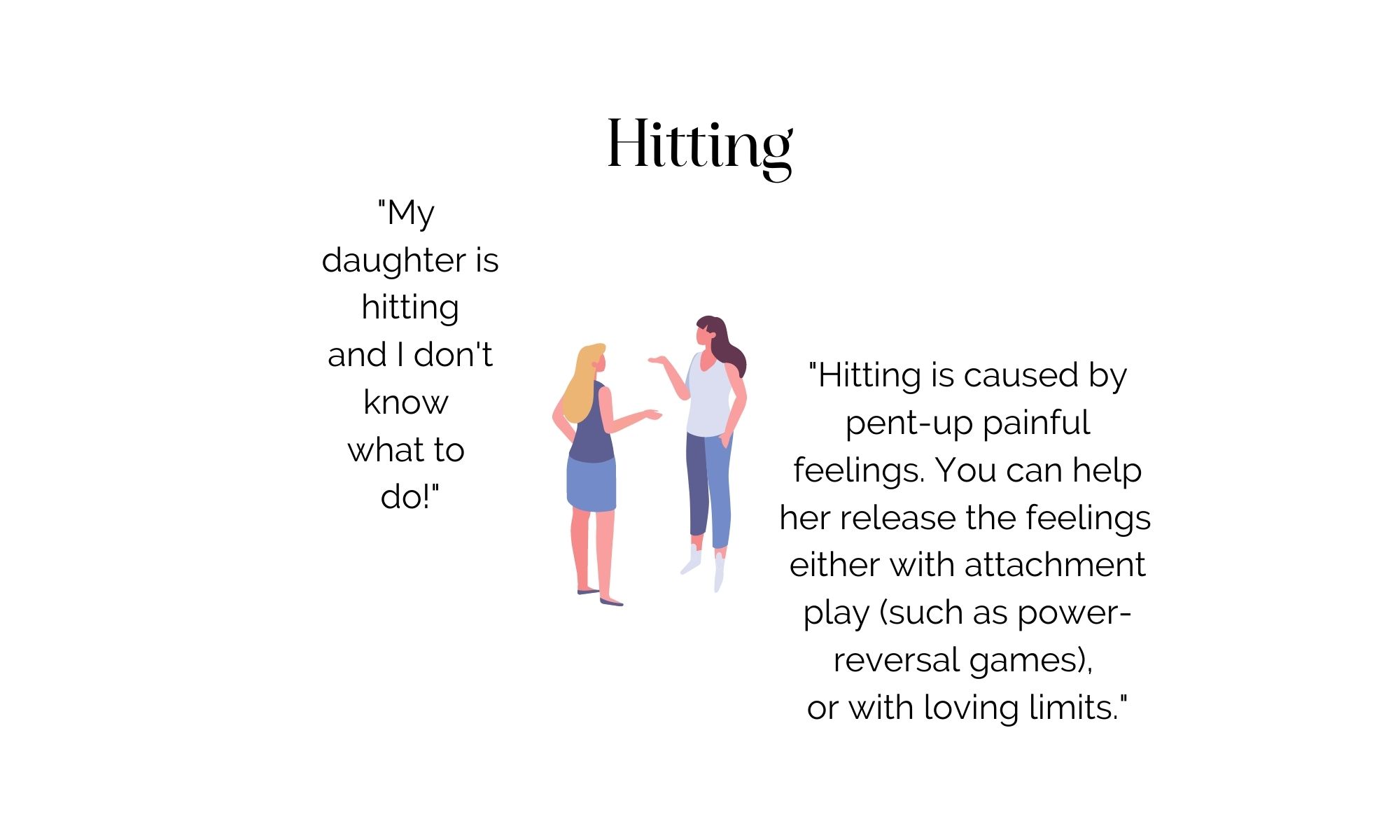Does your child hit, bite, or are they rough with you, a sibling, other children, or pets?
The cause of all these behaviours is pent-up painful feelings: either powerlessness, frustration, agitation, or fear.
You might be thinking; “But she doesn’t look scared.” But if you reflect back on a time where you got harsh or angry with your partner, child or friend – underneath the loudness, were you feeling scared or frustrated or powerless?
When a child hits or bites, she isn’t feeling powerful. She’s probably feeling scared, frustrated or powerless.
The more we help children release those feelings, the less likely they will hit or bite.
Punishments, harshness, or admonishments to “be gentle” never actually address the cause of hitting.
There are two key ways to help them release the feelings that are actually causing the hitting.
One is with loving limits, where we say no to the behaviour and yes to the feelings that are causing the behaviour.
The other is though a particular kind of laughter and play called attachment play.
Power-Reversal games are one form of attachment play that help children feel more powerful and release the feelings that cause hitting in the first place.
With power-reversal games, we play being the less powerful, less competent, more scared one, our child plays the more powerful, more competent, scary one.
There are so many ways that you can play this.
~ They can chase you round the house, and you can keep running away, pretending to be scared, and then letting them catch you, falling over in a big pile, and being mock-surprised at how fast they are;
~ They are on a swing, and you are in front of them, and each time they come towards you, you pretend that they have knocked you backwards and you go flying backwards in mock surprise about how strong they are;
~ You can have a pillow fight, and each time they hit you with the pillow, you pretend to go flying and again be mock surprised or scared.
You can find out more in my Attachment Play Course, here!
